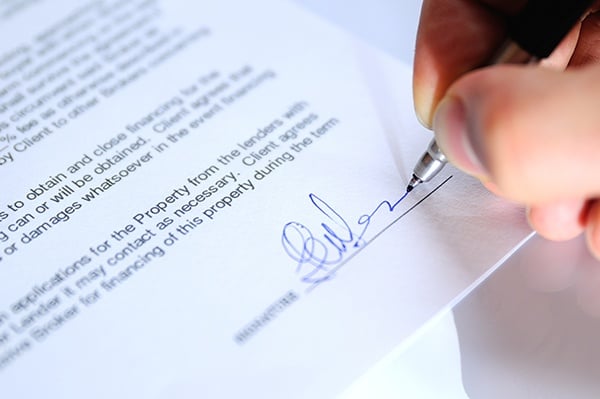
There are two pitfalls in signing any office lease. The first is choosing the wrong space to begin with. The second is signing the wrong document relative to your occupancy of the right space. Here are six tips that can help prevent you from making an expensive mistake in either area.
Research the area's future.
When you sign an office lease, you're making a commitment to what the area will be years from now, so what it is today is less important. Taking a look at historical demographic data and at future projections can help you project a trend line and make sure that what you think is a great location today will still be a great location tomorrow.
Don't fear new space.
While it's true that new space is usually more expensive to lease than existing space, new buildings also come with more generous tenant improvement allowances. If you need extensive customization, you might get a better all-in deal by going with new space than by paying to extensively retrofit existing space.
Watch total occupancy costs.
There are three components to your occupancy cost, and only two of then are actually written into your office lease -- rent, reimbursements and all of the soft costs that come with a given location. A property with low rent could have high reimbursements that more than balance them out. Locations can have their own costs, as well, like special business taxes or regulations that make it more expensive to do business than you expect.
Offer on multiple spaces.
The best way to negotiate from a position of strength is to have multiple people to negotiate with. If you are working with only one potential space, that landlord is in a position of power since you cannot reasonably walk away from the table. On the other hand, if you have multiple options, you can push harder on each of them, knowing that you have two or three other back ups.
Consider a shorter office lease.
Traditionally, tenants have signed longer leases. Usually, those longer agreements carry lower costs and higher concessions. They also offer more stability. However, with the pace of business speeding up, it is harder to know what you will need seven or ten years from now. Signing a shorter lease with options to renew -- even if it costs you a little more -- could save you a great deal if you need to move out in the future.
Get some help.
An office lease is probably one of the most complicated and expensive agreements that your company will ever sign. With a decision of this magnitude, it makes sense to leverage third party expertise. An attorney can help review the legal points to make sure that risks are mitigated. A broker will help you negotiate business points and give you the market intelligence that you need to make good decisions and get the best deal possible.
Othe Office Lease Articles to Check Out:
5 Office Lease Terms to Watch For
5 "Gotchas" in Your Office Lease
Commercial Tenants Guide to Office Leases
Subscribe to our blog for more CRE tips!!








